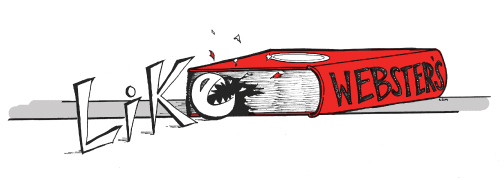“˜Like’ is the bane of the English language

By Avni Nijhawan
Nov. 24, 2009 9:19 p.m.
If I, like, had a penny for every time I heard the word “like” used inappropriately, I’d be, like, a millionaire.
From what I’ve heard on the UCLA campus, many students today use the word “like” several times in just one sentence. What originally began as a word of the ’80s unique to Valley girls has now become an acceptable part of American colloquial speech, especially among young people.
But most students don’t realize that the word isn’t just a harmless addition to the English language; a closer look at its usage reveals that not only does it inflate sentences with inarticulate rambling (think of Miss South Carolina’s famous lines), but it also fundamentally changes their meaning.
English professor at Temple University Muffy E.A. Siegel mentions in her 2002 paper “Like: The Discourse Particle and Semantics” that the word makes sentences ambiguous. For example, she points out that most people assume that “Like, every gnu is a gnu,” is just as valid a statement as “Every gnu is a gnu.” However, these people also acknowledge the fact that the two statements may not be exactly equivalent. Is every gnu a gnu? Or is every gnu not really a gnu?
Similarly, she notes the difficulty in trying to decide when “like” is meant to have an effect and when it isn’t. At the very least, linguists agree that people that use “like” aren’t doing so because they’re stupid, even though it may sound that way.
According to Siegel, many journalists, teachers and students think it’s used when people are insecure about their statements and are “apologizing in advance for any errors.” Others feel it is simply used when people are comfortable in their surroundings and are being informal.
No matter how debatable the reasons for using “like” may be, they are irrelevant because there is no denying the negative effects of the word.
Imagine if someone running for political office used the word “like” the way our peers do (“Like, yes we can!”), or if your doctor started using it while diagnosing your condition (“You have, like, cancer”), or if you used it in a job interview (“I am, like, passionate about this position because of my, like, interest in marketing”).
The mere thought is ridiculous. Otherwise powerful statements are immediately and irreversibly trivialized: Slogans become meaningless, life and death situations become laughable, and interviews become jokes.
Siegel’s own study involved asking 23 high school honors students the question “What is an individual?” She found that when students did not plan their words, the incidence of “like” went up greatly. Students who planned their responses, although slower to respond, used “like” far less than their spontaneous counterparts.
The benefits of thinking before you speak are obvious: You’ll gain confidence in your words because you’ll avoid making claims you’ll later regret; you’ll demonstrate genuine interest in what someone else is saying by giving yourself ample time to critically analyze their words; and of course, you’ll sound far more articulate when you don’t have to rely on filler.
Sadly, some adults, in an attempt to connect with today’s youth treat the word as some kind of cool new phenomenon.
New York Times columnist Patricia T. O’Conner goes so far as to cite the word as “ingenious,” and suggests that people may not accept “like” just because it’s associated with young people, and young people aren’t taken seriously in general.
In my book, “ingenious” is not defined by sounding like a babbling, insecure idiot. William Shakespeare used English in a way that was ingenious; the student who depends on filler to speak does not.
Plus, it’s hard to make the case that young people should be taken seriously when they struggle to talk in full sentences.
I wince and fidget restlessly whenever I hear students ask questions in lecture because of all the “likes” they use.
I have observed that professors almost never use the word unless English isn’t their first language (sadly, using “like” these days bestows native speaker status), exemplifying confidence in their speech.
Unfortunately, many teaching assistants don’t take after their professors. This bothers me because TAs often have excellent insight, but their words are less meaningful when I have to sift through the “likes.”
Luckily, it isn’t impossible to break the habit. The best thing you can do to stop is simply to become conscious of when you use the word.
Don’t use it when speaking to adults, especially if they are potential bosses or letter-of-recommendation writers. Don’t use it in lecture or discussion. It’s altogether too easy to slip it into sentences without noticing, but the more we realize it’s there, the more proactive we can be about avoiding it.
On the other hand “¦ I wouldn’t mind being a millionaire.
Got, like, a penny? E-mail Nijhawan at [email protected]. Send general comments to [email protected].


